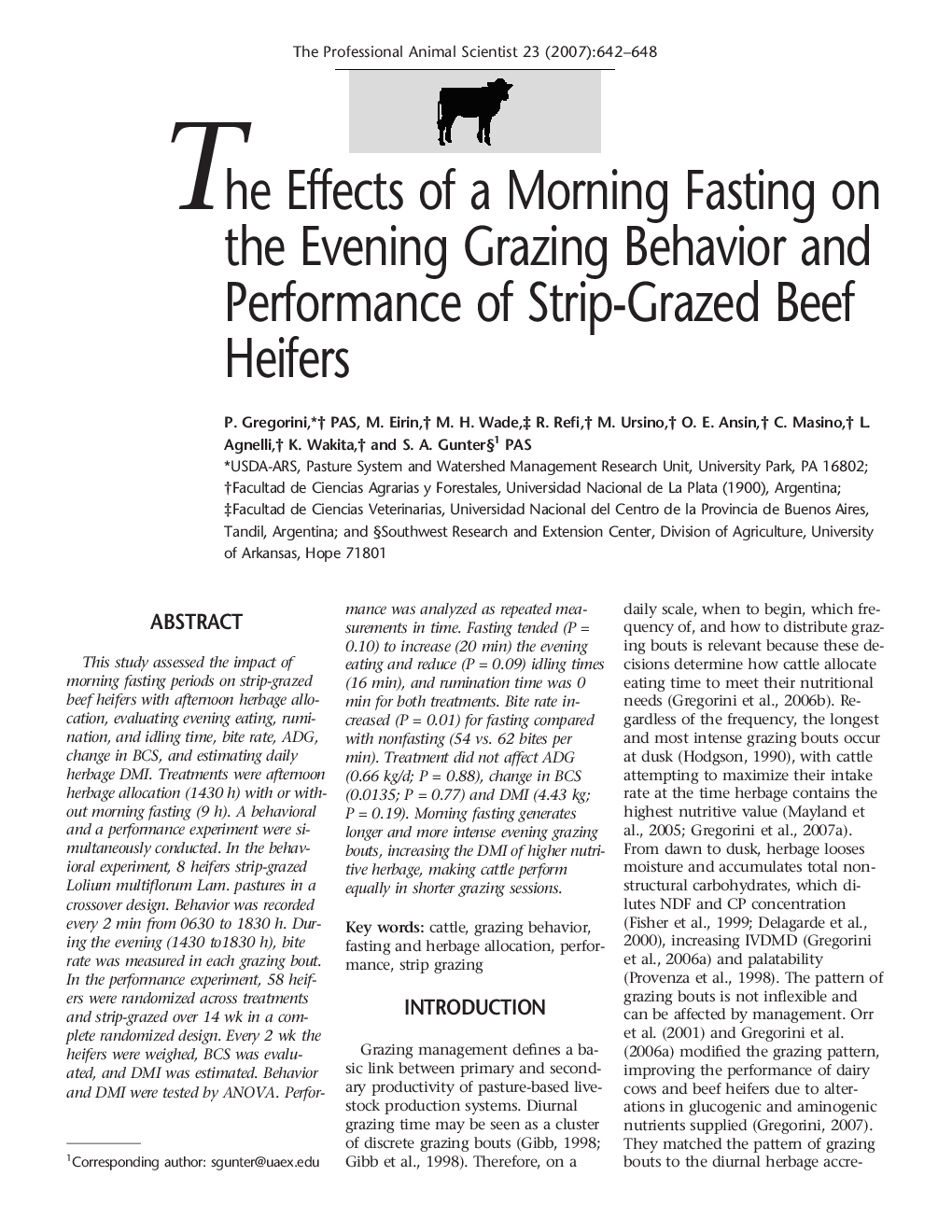| Article ID | Journal | Published Year | Pages | File Type |
|---|---|---|---|---|
| 2454161 | The Professional Animal Scientist | 2007 | 7 Pages |
Abstract
This study assessed the impact of morning fasting periods on strip-grazed beef heifers with afternoon herbage allocation, evaluating evening eating, rumination, and idling time, bite rate, ADG, change in BCS, and estimating daily herbage DMI. Treatments were afternoon herbage allocation (1430 h) with or without morning fasting (9 h). A behavioral and a performance experiment were simultaneously conducted. In the behavioral experiment, 8 heifers strip-grazed Lolium multiflorum Lam. pastures in a crossover design. Behavior was recorded every 2Â min from 0630 to 1830Â h. During the evening (1430 to1830 h), bite rate was measured in each grazing bout. In the performance experiment, 58 heifers were randomized across treatments and strip-grazed over 14 wk in a complete randomized design. Every 2 wk the heifers were weighed, BCS was evaluated, and DMI was estimated. Behavior and DMI were tested by ANOVA. Performance was analyzed as repeated measurements in time. Fasting tended (P = 0.10) to increase (20Â min) the evening eating and reduce (P = 0.09) idling times (16 min), and rumination time was 0Â min for both treatments. Bite rate increased (P = 0.01) for fasting compared with nonfasting (54 vs. 62 bites per min). Treatment did not affect ADG (0.66 kg/d; P = 0.88), change in BCS (0.0135; P = 0.77) and DMI (4.43 kg; P = 0.19). Morning fasting generates longer and more intense evening grazing bouts, increasing the DMI of higher nutritive herbage, making cattle perform equally in shorter grazing sessions.
Keywords
Related Topics
Life Sciences
Agricultural and Biological Sciences
Animal Science and Zoology
Authors
P. Pas, M. Eirin, M.H. Wade, R. Refi, M. Ursino, O.E. Ansin, C. Masino, L. Agnelli, K. Wakita, S.A. Pas,
